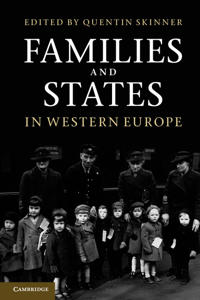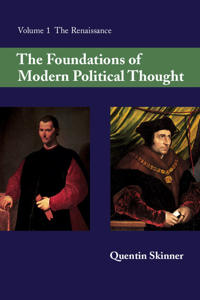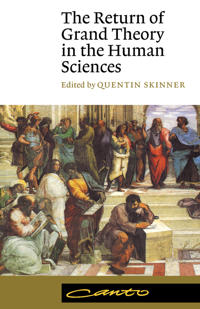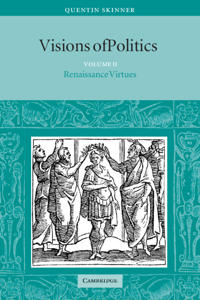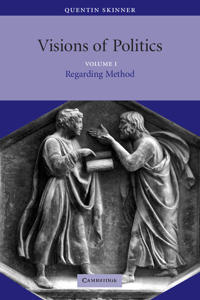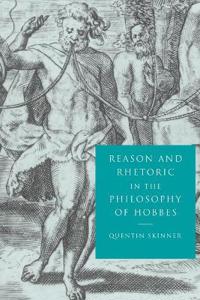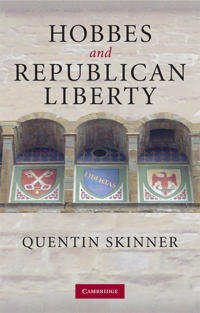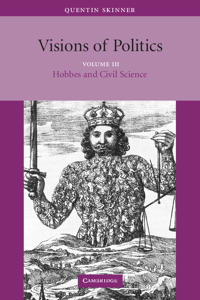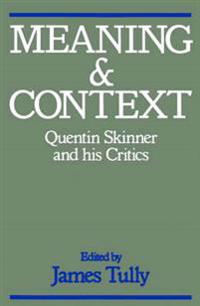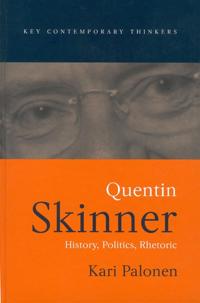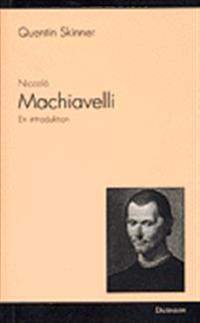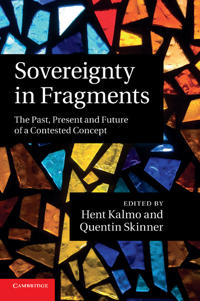Machiavelli (Häftad)
avQuentin Skinner
ISBN: 9780192854070 - UTGIVEN: 200010Niccolo Machiavelli taught that political leaders must be prepared to do evil that good may come of it, and his name has been a byword ever since for duplicity and immorality. Is his sinister reputation deserved? In answering this question Quentin Skinner focuses on three major works, The Prince, t[...]
Forensic Shakespeare (Inbunden)
avQuentin Skinner
ISBN: 9780199558247 - UTGIVEN: 2014-10Forensic Shakespeare illustrates Shakespeare's creative processes by revealing some of the intellectual materials out of which some of his most famous works were composed. Focusing on the narrative poem Lucrece, on four of his late Elizabethan plays - Romeo and Juliet, The Merchant of Venice, Juliu[...]
Wedding Etiquette Hell: The Bride's Bible to Avoiding Everlasting Damnation (Häftad)
avQuentin Skinner
ISBN: 9780312330231 - UTGIVEN: 200506Families and States in Western Europe (Pocket)
avQuentin Skinner
ISBN: 9780521128018 - UTGIVEN: 201106This collection of essays traces the relationship between families and states in the major countries of Western Europe since 1945, examining the power of states to shape family life and the capacity of families to influence states. Written by an exceptionally distinguished team of scholars, Families[...]
The Foundations of Modern Political Thought (Pocket)
avQuentin Skinner
ISBN: 9780521293372 - UTGIVEN: 197812A two-volume study of political thought from the late thirteenth to the end of the sixteenth century, the decisive period of transition from medieval to modern political theory. The work is intended to be both an introduction to the period for students, and a presentation and justification of a part[...]
The Foundations of Modern Political Thought: Volume 2, The Age of Reformation (Häftad)
avQuentin Skinner
ISBN: 9780521294355 - UTGIVEN: 197811A two-volume study of political thought from the late thirteenth to the end of the sixteenth century, the decisive period of transition from medieval to modern political theory. The work is intended to be both an introduction to the period for students, and a presentation and justification of a part[...]
Machiavelli (Pocket)
avNiccolo Machiavelli, Russell Price, Quentin Skinner
ISBN: 9780521349932 - UTGIVEN: 198811In his introduction to this new translation by Russell Price, Professor Skinner presents a lucid analysis of Machiavelliâs text as a response both to the world of Florentine politics, and as an attack on the advice-books for princes published by a number of his contemporaries. This new edition [...]
The Return of Grand Theory in the Human Sciences (Häftad)
avQuentin Skinner
ISBN: 9780521398336 - UTGIVEN: 1990-09The past quarter of a century has seen dramatic developments in social and political thought. These essays offer an indispensable introduction to some of the most influential amongst them. Quentin Skinner?s Introduction traces broad transformations such as the erosion of empiricist assumptions and t[...]
Visions of Politics: Volume 2, Renaissance Virtues (Häftad)
avQuentin Skinner
ISBN: 9780521589253 - UTGIVEN: 200209The second of three volumes of essays by Quentin Skinner, one of the worldâs leading intellectual historians. This collection includes some of his most important essays on the political thought of the Italian renaissance, each of which has been carefully revised for publication in this form. Al[...]
Visions of Politics (Häftad)
avQuentin Skinner
ISBN: 9780521589260 - UTGIVEN: 200209The first of three volumes of essays by Quentin Skinner, one of the worldâs leading intellectual historians. This collection includes some of his most important philosophical and methodological statements written over the past four decades, each carefully revised for publication in this form. I[...]
Reason and Rhetoric in the Philosophy of Hobbes (Häftad)
avQuentin Skinner
ISBN: 9780521596459 - UTGIVEN: 1997-06This major new work from Quentin Skinner presents a fundamental reappraisal of the political theory of Hobbes. Using, for the first time, the full range of manuscript as well as printed sources, it documents an entirely new view of Hobbes?s intellectual development, and re-examines the shift from a [...]
Hobbes and Republican Liberty (Pocket)
avQuentin Skinner
ISBN: 9780521714167 - UTGIVEN: 200803Quentin Skinner is one of the foremost historians in the world, and in Hobbes and Republican Liberty he offers a dazzling comparison of two rival theories about the nature of human liberty. The first originated in classical antiquity, and lay at the heart of the Roman republican tradition of public [...]
Visions of Politics (Häftad)
avQuentin Skinner
ISBN: 9780521890601 - UTGIVEN: 200209The third of three volumes of essays by Quentin Skinner, one of the worldâs leading intellectual historians. This collection includes some of his most important essays on Thomas Hobbes, each of which has been carefully revised for publication in this form. In a series of writings spanning the p[...]
Meaning and Context: Quentin Skinner and His Critics (Häftad)
avJames Tully
ISBN: 9780691023014 - UTGIVEN: 198901Quentin Skinner is one of the leading thinkers in the social sciences and humanities today. Since the publication of his first important articles some two decades ago, debate has continued to develop over his distinctive contributions to contemporary political philosophy, the history of political th[...]
Quentin Skinner: History, Politics, Rhetoric (Inbunden)
avKari Palonen
ISBN: 9780745628561 - UTGIVEN: 2003-06-30Quentin Skinner: How the Media Colonize Politics (Häftad)
avKari Palonen
ISBN: 9780745628578 - UTGIVEN: 200306An exposition of the work of the important intellectual historian and political theorist Quentin Skinner. The volume charts Skinner's work from the early 1960s onwards and is organized around five major themes: history; linguistic action; political thought; liberty and rhetoric.[...]
Liberty Before Liberalism (Pocket)
avQuentin Skinner
ISBN: 9781107689534 - UTGIVEN: 2012-03-26Provides one of the most substantial statements about the importance, relevance, and potential excitement of this form of historical enquiry.[...]
Politik og historie. En tekstsamling (Häftad)
avQuentin Skinner
ISBN: 9788741252674 - UTGIVEN: 2009-08-19Machiavelli (Pocket)
avQuentin Skinner
ISBN: 9789171730282 - UTGIVEN: 199401Denna presentation av Machiavellis liv och tänkande är något så ovanligt som en populärt hållen framställning av skriven av en internationellt ledande expert. Quentin Skinner behärskar till fulländning även de mindre kända av Machiavellis arbeten. Dessutom besitter han de mycket grundliga[...]
States and Citizens (Inbunden)
avQuentin (EDT) Skinner, Bo (EDT) Strath, Quentin (EDT) Skinner
ISBN: 9780521831567 - UTGIVEN: 2003-11The imminent demise of the nation-state in the face of global capitalism and supra-national agencies like the United Nations has often been predicted, yet in practice the death of the state seems unimaginable: indeed terrorist activity and corporate collapse have made states, if anything, more asser[...]
Sovereignty in Fragments (Pocket)
avHent (EDT) Kalmo, Quentin (EDT) Skinner, Hent (EDT) Kalmo
ISBN: 9781107679399 - UTGIVEN: 2014-03The political make-up of the contemporary world changes with such rapidity that few attempts have been made to consider with adequate care, the nature and value of the concept of sovereignty. What exactly is meant when one speaks about the acquisition, preservation, infringement or loss of sovereign[...]




